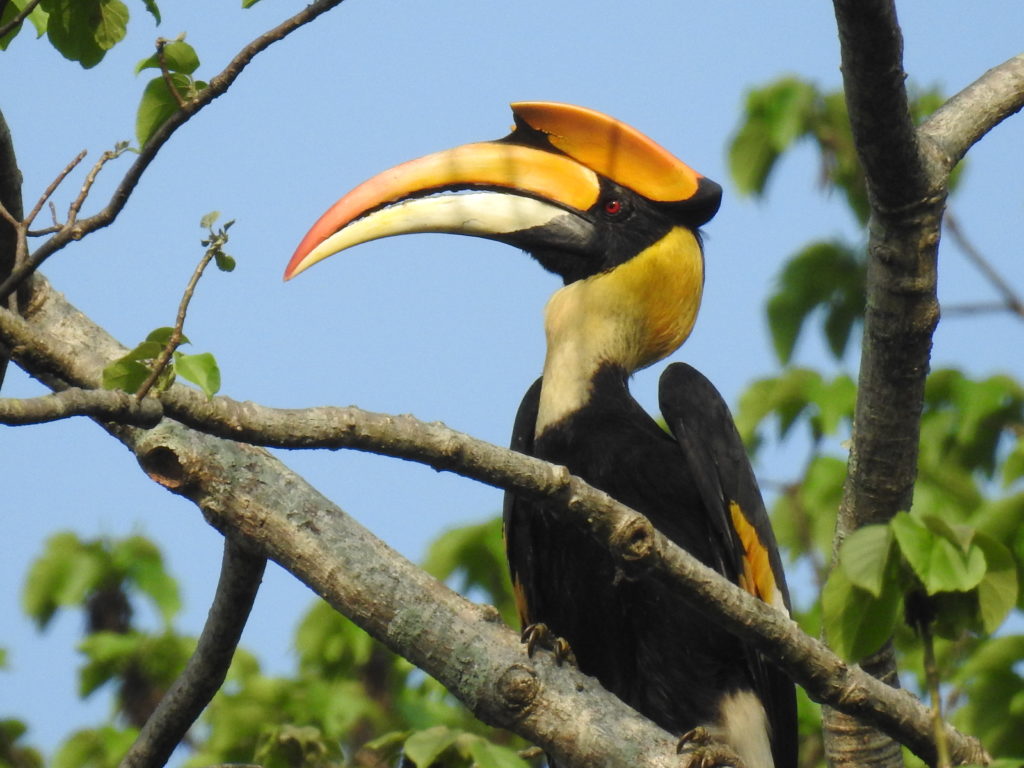Hornbills are the ‘farmers of the forest’ as they disperse the seeds of many tropical trees and keep the forest alive. Unfortunately, most hornbill species are threatened by habitat loss and hunting. Some species have adapted to live alongside humans which is evident from their presence in the degraded forests, gardens, plantations and forest patches within cities. So, it is necessary to understand their distribution pattern, behaviour and conservation status by joining hands with the people.
One can also read about the nine hornbill species in India as well as get general information regarding Asian hornbill research and conservation on the website.
Hornbill Watch platform is built to encourage citizen participation, targeting birders, nature enthusiasts, and photographers to contribute by sharing hornbill sightings and images. Their contribution will help in long-term conservation efforts of hornbills and their habitat.
The nine hornbill species occur in many parts of the country both within and outside formal protected areas. Small teams of researchers/scientists/forest managers working only in a few areas would not be able to gather information at a larger scale all over India. This project offers an opportunity for people to become ‘citizen scientists’ and make their valuable contribution of knowledge/casual observations for knowing hornbills better and indirectly helping in conservation.
No prior knowledge is expected, except an interest in hornbills and ability to accurately identify or learn to identify different species of hornbills.


